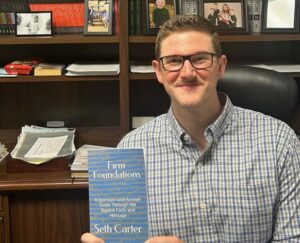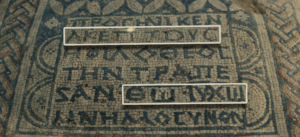
DEERFIELD, Ill. (BP)–This week the United Nations’ General Assembly will debate yet again two conflicting proposals on human cloning. The so-called Costa Rican resolution, which is co-sponsored by the United States and about 60 other countries, would prohibit cloning human embryos for purposes of both reproduction and experimentation. A measure sponsored by Belgium and about 20 other countries would ban only reproductive cloning, thereby permitting the production of clones who would be destroyed when stem cells are extracted for research.
Embryo cloning has been an extraordinarily controversial and divisive issue internationally. Groups like Britain’s Human Fertilisation and Embryology Authority (HFEA) have given permission to two labs in the UK to clone human embryos for research purposes. Interestingly, the HFEA’s first license was awarded to a clinician, not a scientist, at Newcastle University. This underscores the HFEA’s commitment to see the research target therapeutic goals rather than pure research goals.
When queried by the Guardian about the ethics of human embryo cloning for research purposes, Suzi Leather, the HFEA’s chief executive said they proceeded only “after careful consideration of all the scientific, ethical, legal and medical aspects of the project. This is an important area of research and a responsible use of technology.”* No one doubts that stem cell research is a worthy pursuit. Everyone believes the promise of stem cells warrants increased funding. The questions are (1) whether human embryos should be destroyed to obtain stem cells and (2) whether human embryos should be generated through cloning for the express purpose of embryo-destructive experiments.
Two profound issues are at stake. The first issue is whether we regard members of our species, Homo sapiens, as deserving of respect and having at least a right not to be unnecessarily harmed.
Thousands of years of moral and legal evolution have led civilized societies to reject human chattel slavery on the grounds that all members of our species are deserving of respect. “Respect” in this case has meant at least that humans should not be commodified, owned for the benefits of others. Human beings, we have learned through painful social experiments, are not to be instrumentalized. Now, however, use of living members of our species for research purposes, especially in research which results in their destruction, threatens to undo the lessons learned from the past.
Moreover, the other issue at stake in this debate is how, in a global culture, we will resolve moral, legal and ethical issues, especially when human life is at risk.
Critics of the Costa Rican resolution charge that the nations opposed to human cloning are being obstructionist by maintaining their stance. But, why, in light of the western tradition, should those who oppose the commodification and instrumentalization of human beings be characterized as obstructionists? In a past generation, William Wilberforce and other defenders of human dignity were regarded as heroes for their indefatigable efforts to end the slave trade in England. Doubtless, those who advocated for slavery viewed Wilberforce and company as obstructionists as well, but history has proven that they were courageous moral visionaries who understood that human beings could not be used as mere tools for the economic, social and even health benefits of the British culture.
Thus, one of the lessons of history is that when it comes to protecting human beings — members of our species — special care must be taken and extraordinary caution must be exercised. Otherwise, the risk to some members of the moral community becomes a risk to all members of the human community.
In a global environment, where moral, social and legal traditions are very diverse, it seems reasonable to argue that the most conservative position should be maintained; namely, that no human being — no matter how young, how old, how marginalized socially or how infirm — should be instrumentalized. Commodification of any class of human beings threatens the freedom of every class of human beings.
In sum, it is wrong to characterize the Costa Ricans and their supporters as obstructionists with respect to human embryo-destructive cloning. If anyone is guilty of creating an impasse, it is those who continue to lobby for the right to destroy members of our species in order to exploit their body parts, even for the laudable goal of healing.
–30–
C. Ben Mitchell, Ph.D., is consultant on biomedical and life issues for the Southern Baptist Ethics & Religious Liberty Commission and teaches bioethics and contemporary culture at Trinity Evangelical Divinity School north of Chicago. (*https://www.guardian.co.uk/uk_news/story/0,3604,1338727,00.html)














